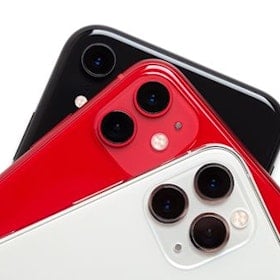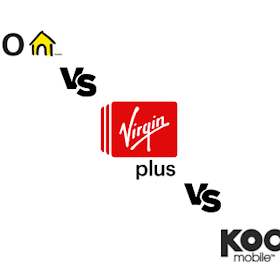
You don’t have to go with the big, familiar names if you’re looking for a new smartphone. These days there are plenty of viable alternatives, many of which will offer a fantastic experience for a much-lower price.
In 2015, the phones that really stood out as value-for-money winners tended to be Nexus or Motorola handsets. As such you might sense a theme in this article, but we’ll be sure to cover the downsides of each device, as well as what makes it a value winner in our eyes.
Note: Prices are subject to change, and up-front plan pricing differs depending on the plan, and the carrier.
Moto G (3rd Generation)

- Outright: around $250
- On plans: starts at $0 down
AKA the Moto G3, AKA the Moto G 2015, the 3rd generation of the Moto G is the most-affordable, and possible most bang-for-buck device on this list. It is an utterly fantastic little phone, given what you pay, and the best entry-point in to the smartphone market you could ask for.
Understandably, the cheaper you go with a complicated device like a smartphone, the more sacrifices you end up making in terms of functionality. There’s nothing more frustrating than a piece of tech that doesn’t work properly, so it can be a little hair-raising when looking for a budget smartphone.
Motorola pretty much eliminates these troubles. The price-point might put the G3 in the low-end of the market, but this phone is designed to take on the mid-rangers, and boy does it. The G3 can take on phones double its price in many respects.
The camera is thoroughly passable, the user experience is smooth and surprisingly fast, battery life is fine and the darn thing is even so water-resistant that you can drop it in a sink of water without a care in the world.
The only real downside is storage and memory. Globally, there are two versions of the Moto G3; one has 16GB of storage and 2GB of RAM, the other has 8GB of storage and 1GB of RAM. Guess which one Canada has.
It’s true that 8GB is simply not enough to get most users by these days, but you can grab a microSD card (up to 32GB is supported) for pretty cheap, which expands storage. It’s not quite as functional as having the storage built-in, but you can still save songs, pictures, and a lot of apps to the card, which tends to be enough to turn an 8GB phone in to a usable piece of tech.
|
Check out 1GB Moto G3 Plans |
Check out 2GB Moto G3 Plans |
Check out 4GB Moto G3 Plans |
Check out 6GB+ Moto G3 Plans |
Moto X Play
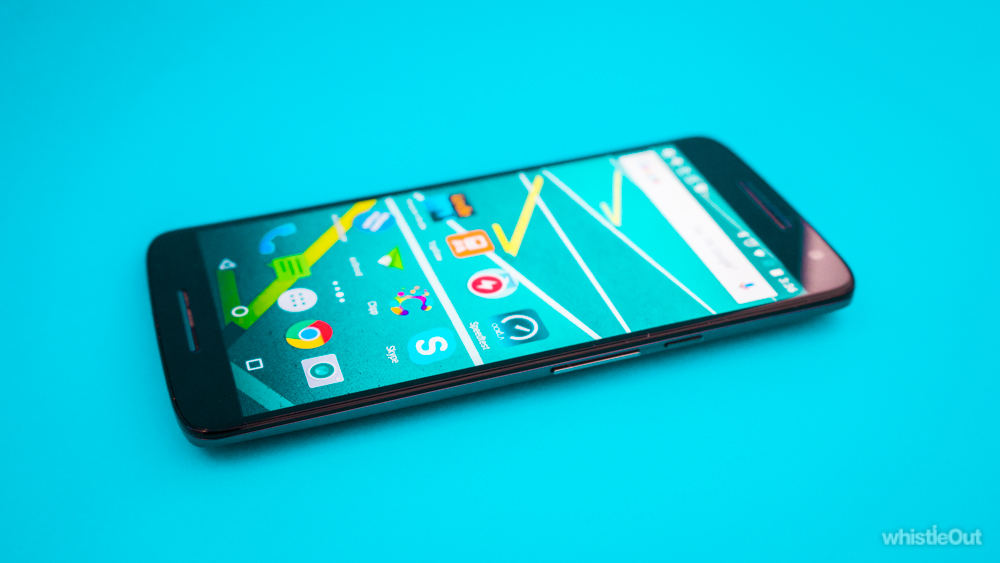
- Outright: around $420
- On plans: starts at $0 down
Next on the shopping list is the G3’s big-brother: the Motorola Moto X Play. Also great value for money, the Moto X is priced like a mid-ranger, but in the wild can be observed nipping at the heels of the expensive top-tier.
The most-notable difference between the X Play and something like a Galaxy S6 or iPhone 6s is its camera. While acceptable, even good, it falls short when it comes to low-light situations.
This is not a criticism; something the price of the X Play shouldn’t be able contend at all with big-name flagships, but in almost every other way that counts this phone is a heavy hitter.
Your value will mostly be found in day-to-day operations. The user interface is very smooth, as smooth as the big league players and far superior to competition from within its own price range.
The display is bright and clear. You might shirk form its ‘only’ 1080p resolution, but Motorola had to save money somewhere, and 1080p really isn’t bad. In fact, the merits of going any higher are arguable at best. Quad-HD screens like those found on the Samsung Galaxy S6 cost more and drain the battery faster. The pay-off is a minor increase in crispness when on the home screens, or playing games. However, some people can’t spot the difference (if you wear glasses you’re probably one of these people), and very little video content is even available in anything above 1080p at this point in time.
In case you’re still concerned; 1080p affords the X Play around 403 pixels per inch (ppi). That’s roughly identical to the iPhone 6s Plus, and significantly better than the 326ppi of the ‘Retina Display’ on the iPhone 6s – two far more expensive devices.
|
Check out 1GB Moto X Play Plans |
Check out 2GB Moto X Play Plans |
Check out 4GB Moto X Play Plans |
Check out 6GB+ Moto X Play Plans |
Nexus 5X
- Outright: around $580
- On plans: starts at $0 down
This is as close to flagship as you can get, without technically buying a flagship device. 2015 saw two ‘Nexus’ devices released: the more-affordable Nexus 5X, made by LG; and the premium-end Nexus 6P, made by Huawei (as seen further down on this list).
It’s a bit more expensive than the Moto X Play, and is roughly comparable in many other ways. Both phones have a similarly fast and smooth experience, and both nip at the heels of the heads of the pack. The 5X does justify its higher price tag with two advantages: a better camera and a handy fingerprint sensor.
Made by LG, you’d expect the 12MP shooter on the Nexus 5X to be pretty good, and you’d be right. It’s not on the level of the flagship LG G4, but it’s pretty darn good. Shots taken during the day are flawless, and those at night are way better than anything in this price range, the Moto X Play included. That’s the real strength of the Nexus 5X; this is the first point in the market where you can really get a decent photo in poor lighting, even if it’s far from perfect. At the very least, it handles pubs and bars (and night time indoor shots) with relative ease most of the time.
On a less-positive note, the 5X has gone back to the old roughly 4:3 aspect ratio for photos, as opposed to the widescreen shots we’ve all become used to. As a result, if you want to switch to widescreen photos, you’ll be dropping down to 8.3MP. We didn’t find this affected image quality too badly, but it’s still a bummer. Moreover, the camera app itself can be a little buggy. It’s prone to crashing if you switch aspect ratios too often (which you’re unlikely to do), and sometimes took a little while to open. Being a Nexus-branded device, we hope to see Google to patch this within the next few months.
The fingerprint scanner is located on the back, around where your forefinger would rest. It’s a great location for both lefties and righties, and makes unlocking your phone crazy easy. That’s all it does, but when you’re talking about a device that you unlock upwards of 20 times a day, it’s the little things that count.
|
Check out 1GB Nexus 5X Plans |
Check out 2GB Nexus 5X Plans |
Check out 4GB Nexus 5X Plans |
Check out 6GB+ Nexus 5X Plans |
Moto X Pure/Style
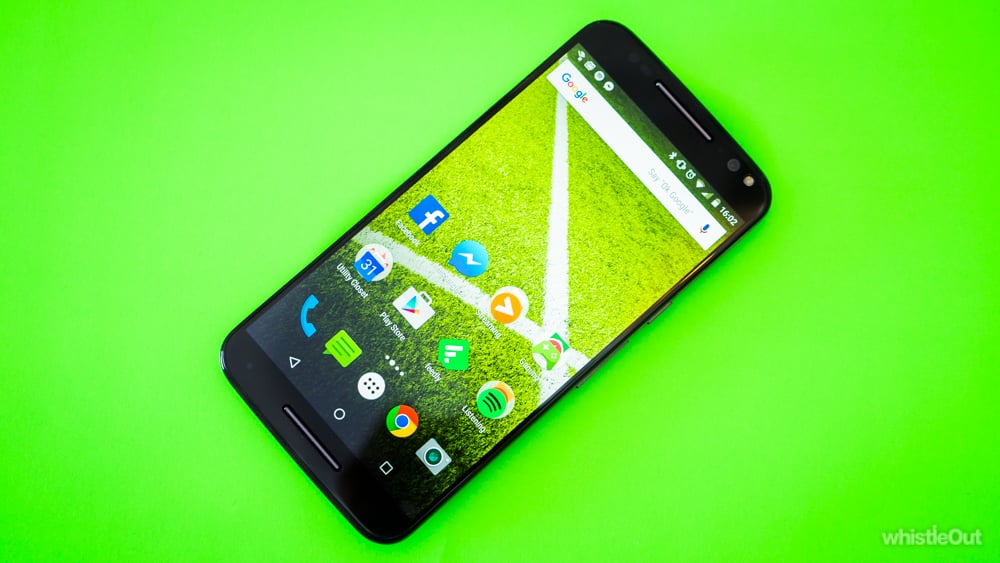
- Outright: $US399
Called the Pure Edition in the US, and the Style just about everywhere else, this flagship Moto X is not available in Canada just yet. That slight geographical obstacle aside, it’s readily available in the US, and can be bought online for around half the price of an iPhone 6s Plus.
This is the (literally) big player for Motorola. Its 5.7 inch quad-HD (1440x2560) display puts it exactly on par with the Samsung Galaxy Note 5. While quad-HD isn’t too important on smaller displays, 5.7 inches is around the point where it starts making a noticeable improvement.
The Moto X Pure is a fully-fledged flagship, both on paper and in practice. You can grab on with 16GB, 32GB or 64GB of on-board storage, after which the microSD slot can take you up to a further 128GB. The Snapdragon 808 processor is still commonly used in other full-price phones, and 3GB of RAM is all you could possibly need for the foreseeable future.
As far as drawbacks go, there’s just one: camera (again). To be fair, the shooter is actually pretty good in most situations, if not great. It’s just less-effective than the likes of a Galaxy S6 or iPhone 6s in low light situations. That being said, it’ll take you further in to the dark than a Moto X Play or Nexus 5X.
The only other possible problem is its size, but that’s up to you. Some people like big phones like the X Pure or Galaxy Note 5, others prefer something smaller.
|
Check out 1GB BYOP Plans |
Check out 2GB BYOP Plans |
Check out 4GB BYOP Plans |
Check out 6GB+ BYOP Plans |
Nexus 6P
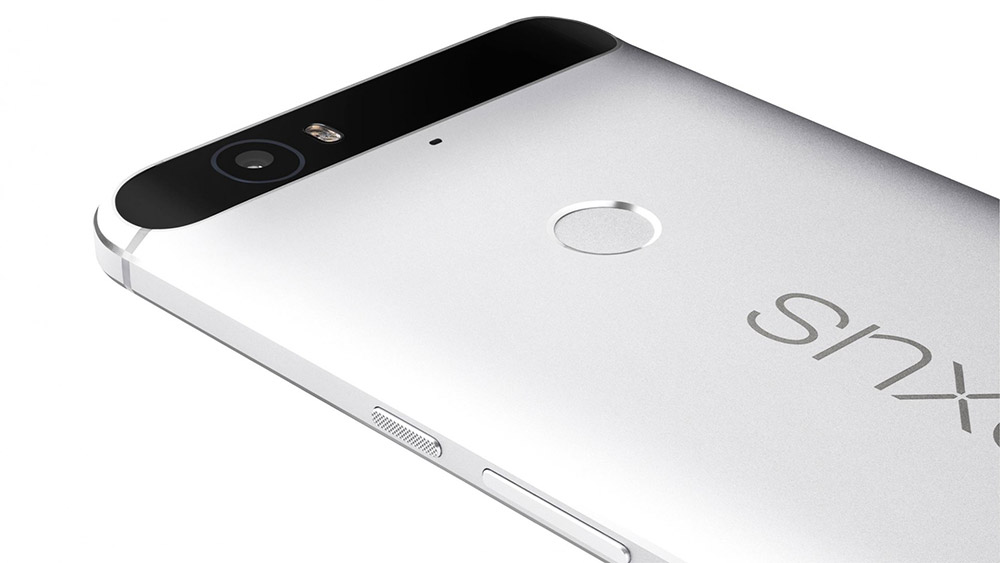
- Outright: around $700
- On plans: starts at $55 down
Finally, right up the top of the quality and price scale for this list, is the Huawei-made Nexus 6P: sister phone of the Nexus 5X, and cost-effective champion of the people. It’s the only fully-metal phone in this article, and as such trounces those that came before when it comes to physical style, and that premium feeling that only comes from the cold touch of metal.
It’s still about half the price of its main competition in the Note 5 and iPhone 6s Plus, and a bit more expensive than the Moto X Pure.
Really, there’s not a huge difference between the X Pure and Nexus 6P, apart from their physical design and the 6P’s rear-mounted fingerprint scanner, which is a surprisingly-useful feature. Of course, fingerprint scanners have been around on phones for ages now, but their location on both the Nexus 6P and Nexus 5X somehow ditches a lot of the hassle, making for a better overall experience.
In terms of camera quality, the Moto X Pure and Nexus 6P are pretty closely-matched. The Pure defaults to wide-screen, and the Nexus 6P to something closer to 4:3, that’s about it.
If you’re deciding between the two, consider this: The Nexus 6P is easier to get your hands on (being sold in Canada), has that sexy metal construction, is thinner, and has the fingerprint scanner to make unlocking your phone easier than you’ve ever experienced.
|
Check out 1GB Nexus 6P Plans |
Check out 2GB Nexus 6P Plans |
Check out 4GB Nexus 6P Plans |
Check out 6GB+ Nexus 6P Plans |
Original Phone Christmas Gift image from Shutterstock
Related Articles
Related Topics
LG Motorola Android Huawei Moto X Pure Moto X Play Moto G3 Nexus 5X Nexus 6P Moto X StylePopular Topics
Android Apple iPhone Samsung Google iOS Cell phone plans Rogers Telus BellFind Better Phones and Plans
Hundreds of cell phone plans unpacked. All the facts. No surprises.






























